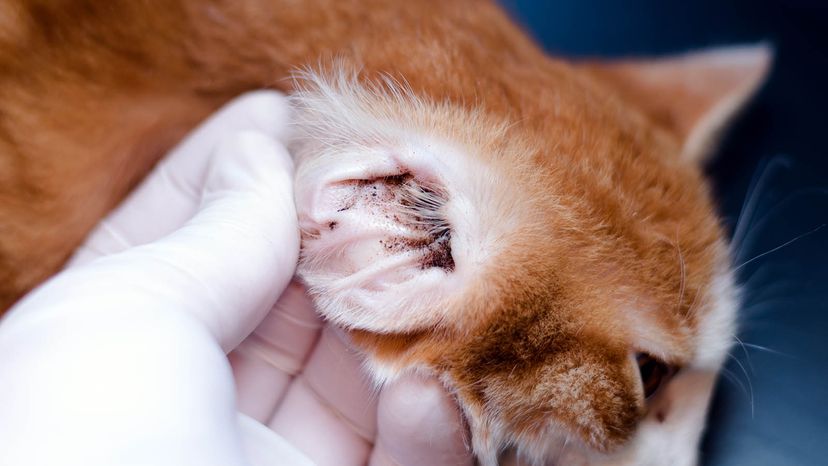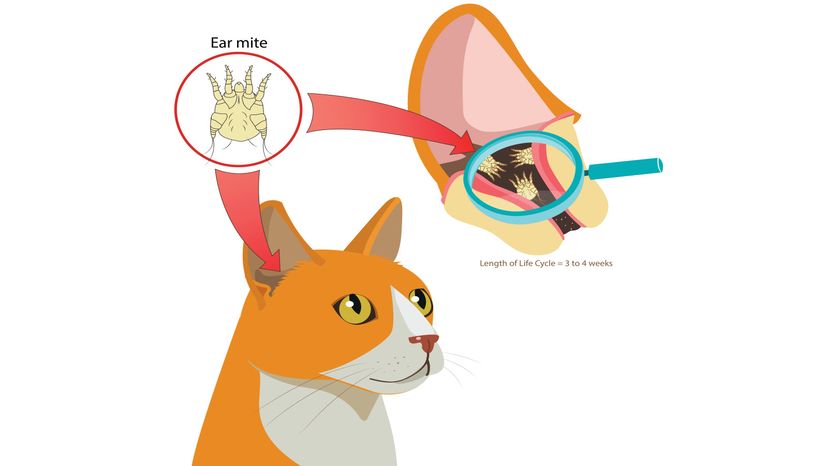
One day you're scratching your cat's ears when you notice something unusual inside: a dark brown, crumbly substance that looks sort of like coffee grounds. This could be ear mites, tiny, pinpoint-sized parasitic insects that live and breed in the ear canals. Ear mites feed on skin debris, cell fluids and blood, and can gnaw on the tissue of the ear canal.
Ear mite infestations usually itch, so cats with infections will scratch their ears, sometimes until their ears are raw, shake their heads, or hold their ears at an odd angle.
Advertisement
Ear mites are common and can spread between cats and other animals. Treatment involves removing the mites from the ears and using a topical insecticide in the ear canal to kill off the remaining mites and new mites that hatch out of eggs left behind. All animals in the household must be treated; if you don't, the ear mites that you get rid of from one cat will just take up residence in another cat's (or a dog's) ears.
Before even treating your cat for ear mites, however, you need proof that they're there. Gently remove a little bit of the crumbly debris from your cat's ear canal with a cotton ball. Then examine it under bright light with a magnifier or spread it on a piece of dark paper. Any movement — including tiny white moving specks — means mites.
Other symptoms of mites in your cat's ears could include:
- strong odor in the ears
- inflammation and redness of the ear(s)
- hair loss around the ears
- skin problems and scabs around the ears
- persistently shaking their head
Sometimes, mite debris is located deep in the ear canal where you can't see it. If you suspect your cat has mites, gently massage the back of the ear at the base between your thumb and forefinger. A cat with no mites usually enjoys it or, at worst, will fuss and try to get away. A cat who has unwanted company living in her ear canal will usually start scratching vigorously.
Other ear problems can cause itchiness and debris in the ear canal, so don't start home remedies for ear mites until you're fairly certain that's the problem. If you can't get proof of ear mites, it's better to take your cat to the vet so you can be sure that there's not something else going on.
If you know that your cat has a case of mites, read on to learn about some home remedies.
Advertisement



